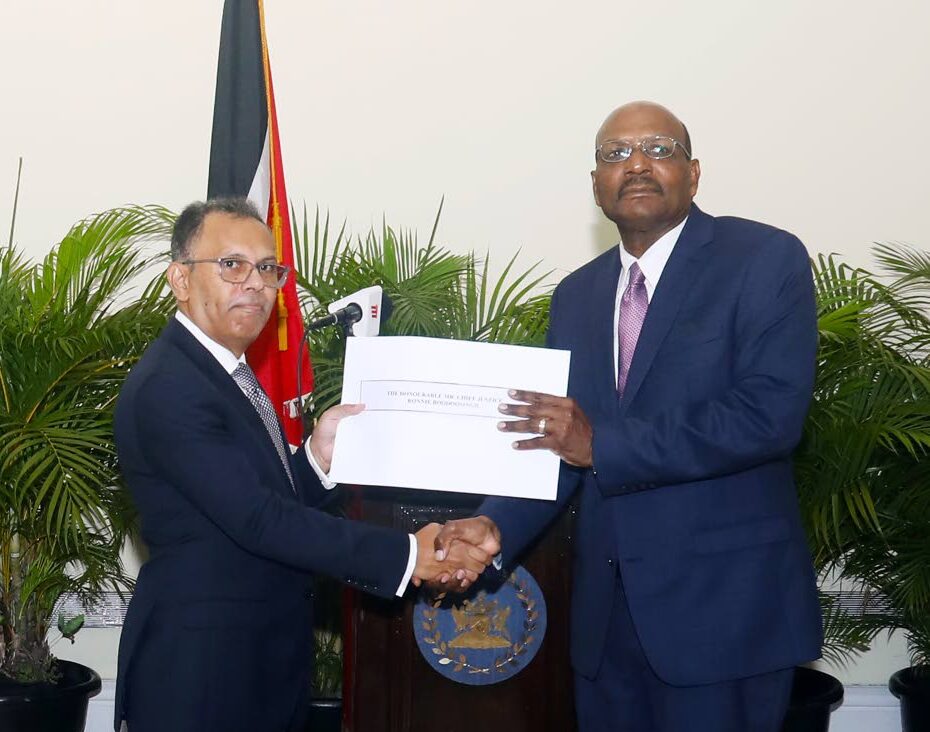The recent appointment of Justice Ronnie Boodoosingh as Chief Justice has sparked significant controversy, with concerns raised about the legitimacy and transparency of the process. The Law Association of Trinidad and Tobago (LATT) and former independent senator Martin Daly SC have both criticized the hastened and truncated consultation process.
博客
-
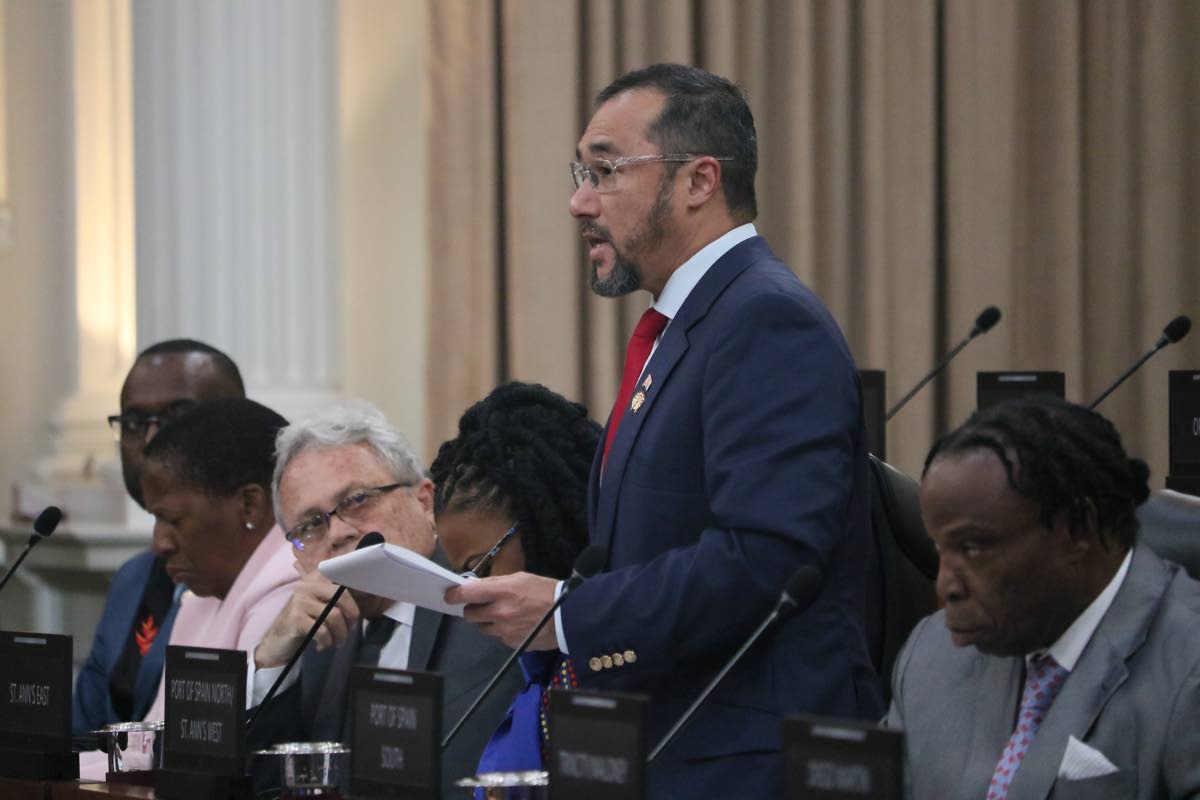
Young questions Maharaj on hotels, scrap metal
During a meeting of the Standing Finance Committee of the House of Representatives on October 23, Port of Spain North/St Ann’s West MP Stuart Young raised critical questions regarding the allocation of funds for small guest houses and the regulation of the scrap metal industry. Young directed his inquiries to Trade, Investment, and Tourism Minister Satyakama Maharaj, emphasizing the potential of small guest houses to generate foreign exchange revenues for Trinidad and Tobago (TT). He questioned whether the $1.5 million allocated to the ministry was adequate to support these establishments, particularly given the rising costs of imported materials due to recent tariffs. Maharaj responded by outlining the ministry’s targeted approach to hotel development, citing ongoing projects such as Tradewinds in San Fernando and Crews Inn in Chaguaramas. He also mentioned efforts to attract private sector investment, including potential collaborations with foreign hotel chains like Best Western. However, Young expressed concerns that the current funding might not suffice for smaller guest houses seeking assistance throughout the year. On the topic of the scrap metal industry, Young inquired about the adequacy of the $400,000 budget for regulatory measures, recalling past efforts to curb criminal activities in the sector. Maharaj assured that the allocated funds would be sufficient, with additional support available if needed. The minister also highlighted the ministry’s broader mission to diversify the economy and strengthen the non-energy sector through strategic planning and robust management.
-

Passing the baton in budget debate?
The 2025-2026 Budget, unveiled on October 13 by Trinidad and Tobago’s new administration, has been hailed by some as a blueprint for hope and transformation. Under the theme “T&T First: Building Economic Fairness through Accountable Fiscal Policies,” Finance Minister Davendranath Tancoo presented a polished and thematic budget that signaled strategic realignments across ministries. However, for advocates of mental health and inclusion, the budget fell short of delivering the urgent and transformative changes needed for vulnerable groups. While the government pledged to decentralize mental health services and promote community-based care, the plan lacked critical details such as timelines, infrastructure, and workforce development. The Social Sector Investment Programme highlighted Trinidad and Tobago’s third-place ranking in the Caribbean for mental illness prevalence, yet the budget’s response to this crisis was deemed tepid. Dr. Margaret Nakhid-Chatoor, a psychologist and educator, criticized the absence of targeted measures for people with disabilities, neurodivergent individuals, and the LGBTQ+ community. Despite growing advocacy for mental health reform and inclusion, the budget failed to address systemic barriers or integrate mental health literacy into the education system. Dr. Nakhid-Chatoor emphasized that true economic fairness requires more than rebranding; it demands a reimagining of progress, urgent investment in community-based care, and the embedding of inclusion into every ministry. She called for a redrawing of the track—one that is urgent, accountable, and inclusive of every citizen—to break the cycle of marginalization and ensure measurable outcomes.
-
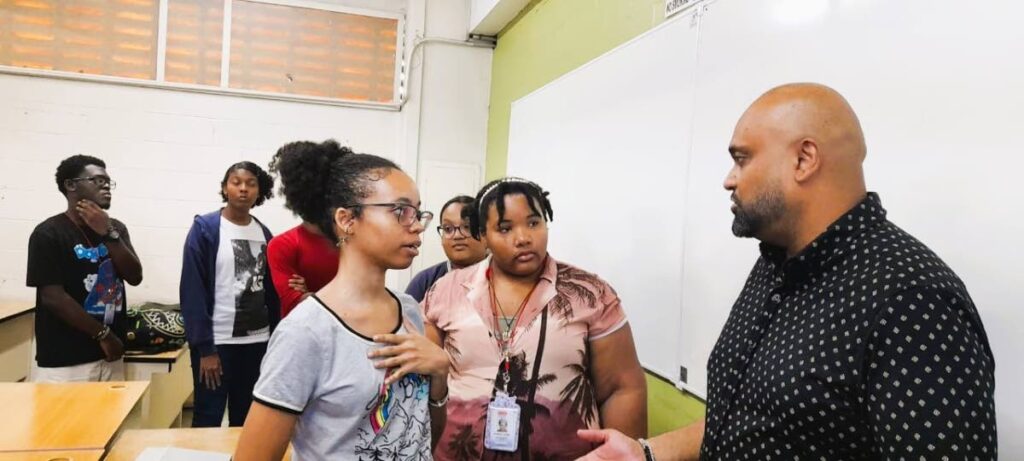
Producer Gino McKoy shares valuable insights to UTT’s digital media students
Trinidad and Tobago-born Canadian filmmaker, singer-songwriter, and producer Gino McKoy recently engaged with students from the University of Trinidad and Tobago’s (UTT) digital media arts program during a presentation and Q&A session on October 15. Known for his sci-fi film *Lumina*, McKoy shared his extensive 17-year experience in the international film and music industries, offering insights on overcoming barriers and leveraging creativity. His film *Lumina* is currently streaming on platforms like Amazon Prime, Tubi, YouTube TV, and Google TV, while its title track *Everything to Me* has made waves as the only indie song on the Billboard AC charts. McKoy emphasized the untapped potential of Caribbean creatives, particularly from Trinidad and Tobago, whose unique culture, folklore, and music could enrich his ambitious ‘Tropical Hollywood’ initiative. He highlighted the need for legislative reforms and incentives, such as revamping film cash rebates and establishing a state-of-the-art film studio ecosystem, to position Trinidad as a top global filming destination. McKoy’s vision aims to diversify Trinidad’s economy by investing in creative industries, potentially generating over 100,000 jobs, $1 billion in revenue, and attracting millions of tourists. Currently in Trinidad for pre-production on his next film, McKoy has met with government officials to discuss strategies to enhance the country’s appeal to international film and music industries. Over the next five years, he plans to complete ten movie projects in Trinidad, leveraging his global network to bring feature films, music, and more to the region.
-

Yuh Doh Leave Fowl to Watch Corn! returns to Central Bank
RS/RR Productions is thrilled to announce the final two performances of their acclaimed comedy, *Yuh Doh Leave Fowl to Watch Corn!*, taking place on October 25 and 26 at the Central Bank auditorium in Port of Spain. This uproarious production, which has captivated audiences with its blend of chaos and humor, promises an evening of non-stop laughter and mischief. The play, directed by Debra Boucaud Mason and Richard Ragoobarsingh, features a stellar cast including comedy veterans Richard Ragoobarsingh, Leslie Ann Lavine, Zo Mari Tanker, Kala Neehall, Benita Wilson, and Andrew Friday. The story unfolds as a seemingly ordinary day descends into hilarious pandemonium, with women waking up in the wrong beds, men protesting their innocence, and a maid who can’t keep a secret. As the Trinidadian proverb warns, *Yuh Doh Leave Fowl to Watch Corn!*—a reminder that leaving things unattended can lead to unexpected chaos. Tickets are available at the Central Bank box office from 12 pm to 6 pm daily or online. Showtimes are 8:30 pm on October 25 and 6:30 pm on October 26. For more information or to purchase tickets, call 481-2185, 338-6024, or 744-7581.
-
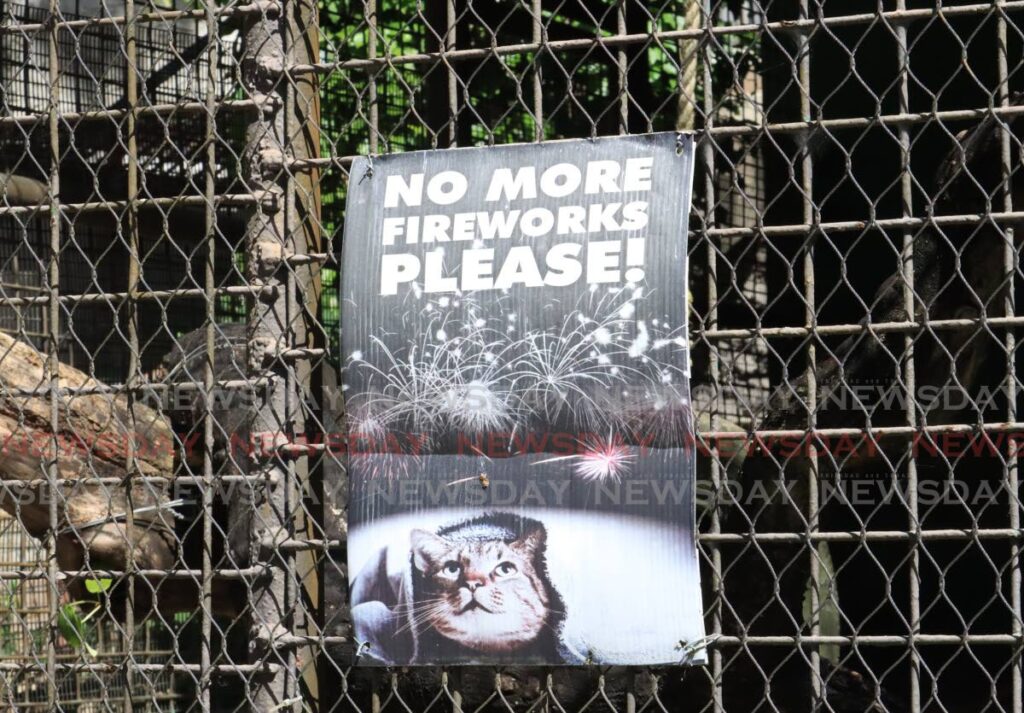
Tax fireworks like cigarettes and alcohol
In a compelling letter to the editor, Navin Persad advocates for the imposition of higher taxes on fireworks, drawing parallels to existing taxes on cigarettes and alcohol aimed at curbing their use and protecting public health. Persad highlights the significant yet often overlooked harms caused by fireworks, including the release of harmful fine particles (PM2.5) and toxic metals into the air, which exacerbate conditions like asthma, heart disease, and respiratory problems, particularly among vulnerable populations such as children and the elderly. Additionally, the noise from fireworks, which can exceed 150 decibels—louder than a jet engine—can lead to hearing damage, anxiety, and sleep disturbances, affecting not only humans but also pets and wildlife, who often suffer from panic, injuries, or displacement. Persad argues that increasing the cost of fireworks would reduce their use, as evidenced by the decline in tobacco and alcohol consumption following price hikes. The revenue generated from such taxes could be allocated to fund professional public displays, enhance emergency services, and promote public education on responsible celebration. While some may view fireworks as a cultural tradition, Persad emphasizes that traditions evolve, citing past changes like indoor smoking bans and seatbelt laws. He also addresses concerns about illegal sales, suggesting that robust enforcement and community celebrations can mitigate such risks. Ultimately, Persad contends that taxing fireworks is a prudent step toward creating a cleaner, quieter, and more compassionate society, where celebrations bring joy without harm.
-
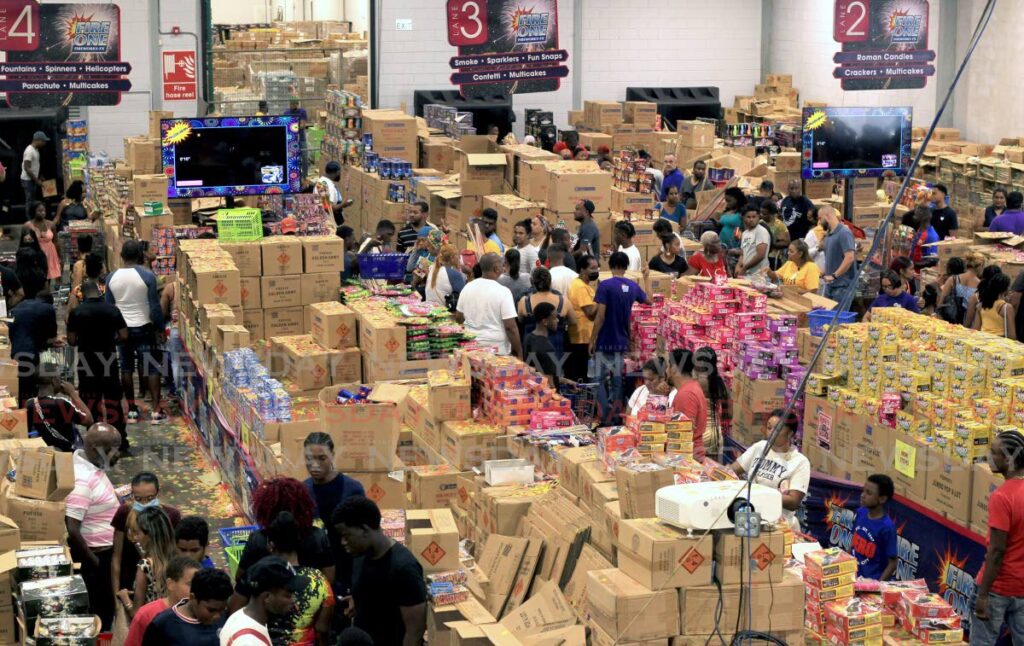
Fireworks disturbance Divali night
A recent letter to the editor has highlighted the growing distress caused by the excessive use of fireworks during the Divali celebrations on October 20. The author, Aarti Gosine, expressed deep disappointment over the disruption, which turned what should have been a peaceful and joyous religious event into a night of chaos and fear. The loud explosions not only terrified animals, causing some to flee, get injured, or even die, but also severely affected vulnerable members of the community, including the elderly and those with health conditions. The noise was so intense that it was likened to the sound of wartime bombs, making the situation unbearable for many. Gosine called for immediate action through stricter enforcement, legislative review, or community awareness campaigns to ensure that future celebrations are conducted with respect and consideration for all. She urged the editor to use their influence to address this issue and take meaningful steps to protect both people and animals in the community.
-

Stop the fireworks madness
The recent Divali celebrations in Trinidad descended into chaos as neighborhoods were transformed into what residents described as a ‘war zone.’ Fireworks exploded incessantly throughout the night, causing widespread distress among families, pets, and wildlife. Many reported their dogs trembling in fear, while others struggled to calm their terrified animals. The aftermath saw social media platforms flooded with posts about missing pets and complaints about the reckless use of fireworks. This stark contrast to the peaceful Independence Day celebrations, which followed a temporary fireworks ban, has left many disheartened. Residents had hoped for a permanent shift toward safer, more responsible festivities, but instead, the situation has worsened. Beyond the noise, fireworks have caused environmental harm, air and water pollution, and heightened anxiety among citizens, particularly during a weekend already fraught with tension due to US Embassy warnings. Amid a state of emergency, such activities should be prohibited. The author, Sharon Burford, urges the government to take decisive action by permanently banning the public sale of fireworks. She advocates for alternative celebrations, such as drone light shows, which are safer, environmentally friendly, and equally spectacular. Burford emphasizes the need for a government that prioritizes public well-being over the profits of fireworks vendors and calls for a future where holidays are free from fear and destruction.
-

Let babies, elderly win
In a heartfelt letter to the editor of Newsday, community advocate Vanessa La Fon Kallo from El Socorro expressed deep frustration over the persistent issue of noise pollution caused by fireworks. Kallo emphasized the need for a noise-free environment that respects all creeds, races, and vulnerable groups, including the elderly, infants, and animals. She called for concrete action by banning the importation of all fireworks, arguing that such measures would provide much-needed relief to those adversely affected by the loud disturbances. Kallo’s plea highlights the broader societal impact of fireworks, which often disrupt the peace and well-being of communities, particularly during holidays. Her letter underscores the importance of prioritizing the needs of the most vulnerable in public policy decisions.
-

US warship bound for Trinidad for military exercises
The USS Gravely, a US Navy destroyer, is set to dock in Port of Spain, Trinidad, from October 26 to 30 for a five-day visit. This deployment, announced by Trinidad and Tobago’s Ministry of Foreign and Caricom Affairs on October 23, will include joint training exercises with the Trinidad and Tobago Defence Force (TTDF). The exercises aim to enhance tactical proficiency, maintenance procedures, and medical capabilities, fostering greater military cooperation between the two nations. The US military presence underscores its commitment to regional security in the Caribbean, particularly amid escalating tensions. The visit follows a heightened state of alert in Trinidad, where a state of emergency declared in July remains in effect until October 28 due to threats against senior government officials. Recent US military strikes against alleged Venezuelan narco-traffickers have further strained regional relations, with Trinidad and Tobago nationals reportedly among the casualties. US President Donald Trump has defended these actions, suggesting potential land operations against drug traffickers in Venezuela. Meanwhile, Trinidadian Prime Minister Kamla Persad-Bissessar has urged calm amidst fears of regional conflict, while maintaining her support for US anti-drug efforts. Her stance has drawn criticism from Venezuela and strained relations with Caricom neighbors, who advocate for a peaceful Caribbean. The US has praised Trinidad for its alignment with regional security initiatives, as evidenced by its inclusion in a joint statement with six Latin American countries supporting Bolivia’s recent election results.
